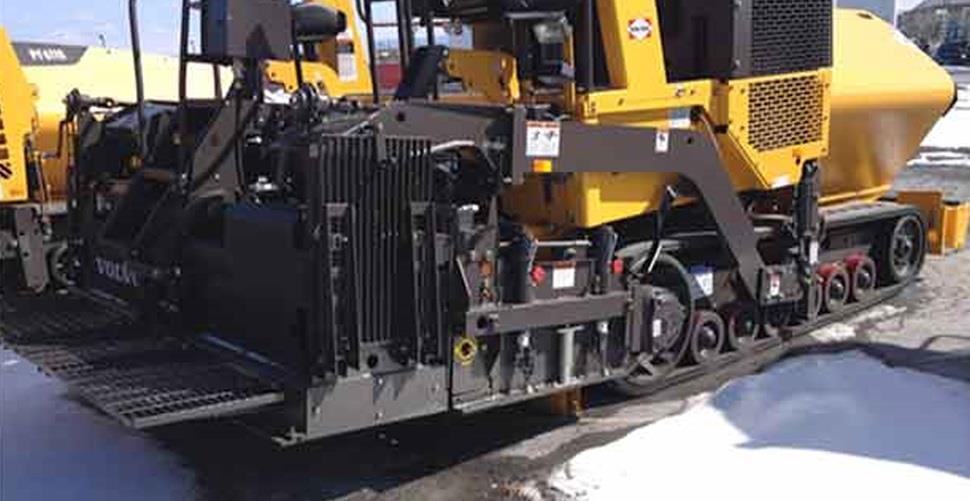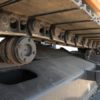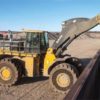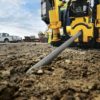WINTERIZING PAVERS AND COMPACTORS
 In many areas of the country, colder temperatures have started setting in — and with them, a need to prepare equipment for colder morning starts. Here are some tips to help prepare your equipment for the cold season ahead.
In many areas of the country, colder temperatures have started setting in — and with them, a need to prepare equipment for colder morning starts. Here are some tips to help prepare your equipment for the cold season ahead.
Asphalt compactors
As the working season is finishing up and frost becomes a normal part of the overnight hours, you’ll want to ensure you’re taking the necessary maintenance steps to prolong the life of your machine.
Introduce antifreeze to your asphalt compactor spray system to prevent the water from freezing in the pipelines or tanks. Winterization kits offer an easy way to ensure water is being drained from the system and antifreeze is being fed into the pumps.
Ensure you have the correct lubricants for your machine and the temperatures in which your machine will be operating — this includes engine, hydraulic, transmission and final drive lubricants. Before you operate each day, check each fluid for proper flow.
Always run the engine until it reaches operating temperature to help prevent the intake and exhaust valves from sticking.
Maintain a full battery charge. Cold weather requires nearly twice as many cranking amps to turn over, so keep your battery warm and charged to help promote an easier start.
If using a pneumatic roller, don’t forget your tires. Check the tires in the morning before running the machine and before the ambient temperature rises.
Warm it up. You wouldn’t start a run in 30-degree weather without a stretch — your machine shouldn’t either. Run it through its daily movements to get oil moving throughout the machine before you put it to work for easier operation.
Drain the water from the water separator at the end of each day, and then fill the fuel tank to avoid freezing.
Shutting it down for the season
Once the chilly season has fully claimed the paving season and you’re preparing to shut down, you’ll want to take a few extra steps for a smooth start come spring:
- Drain all water from your compactor tanks and spray bars — a common method is to flush the system with antifreeze mix. This helps ensure water doesn’t freeze and damage components over the winter;
- Change the oil one last time. When a machine is in operation contaminants will gather in the oil, and when left to sit they can cause corrosion on components;
- Detach any attachments and store them separately to avoid damage to hinges and joints;
- Periodically charge the battery — if left sitting for a long period of time, batteries will discharge, which can shorten their life. In the spring, service technicians typically see a sharp increase in calls due to batteries. Charging the battery periodically throughout the winter can save you the downtime and service call come spring; and
- Cover up operator seat and instrument panel to protect against moisture.
Putting away the paver
Before you store your paver for the season, there are a few things you can do to ensure it will have a healthy start come spring.
- Give the paver a solid cleaning. Scrape off debris or asphalt from the screed, screed extensions, strike off and auger areas — any area that comes into direct contact with the asphalt should be cleaned;
- Clear out the flow path to ensure there is no buildup or obstruction interrupting the flow of hot asphalt;
- Use an approved cleaning agent to clean under the deck, the entire conveyor chain, and auger assembly;
- Drain the fuel tank and refill it with a winter blend to prevent the fuel from turning to sludge at cold temperatures. Do not leave the tank empty, as it will be prone to rust. Also drain the fuel/water separator;
- Drain the spray-down system, mixing system, lines and nozzles of water, and flush them with antifreeze;
- Heavily grease chains and sprockets — particularly those on the screed, but any exposed to the environment — to avoid corrosion due to moisture and cold. Do the same for any exposed cylinders, such as screed lift cylinders;
- After cleaning, flushing and greasing, secure all panels and lock the hoppers in transport mode to minimize precipitation exposure;
- When the paver is put away, make sure the screed is propped off the ground to avoid moisture; and
- Cover the fume extractor and seats to prevent weathering.
While the paver is stored, it is critical to start it and move it around at least monthly. Drain the lines of antifreeze and refill them, remove the blocks and uncover the fume extraction system. Starting the machine and moving it a bit will charge the battery, move the fuel and hydraulics through the system, and help prolong the life of the tires or tracks.
Should your machines require any repairs — or if you’re looking at refurbishment or reman — winter is the perfect time to make those repairs without incurring downtime.
While it can be difficult to fit necessary maintenance or once-a-month start-ups into busy schedules, when it comes time to hit the first job in spring, taking the steps above will help ensure a smooth start — and a smooth road ahead.
source: http://www.volvoce.com/united-states/en-us/about-us/news/2016/winterizing-pavers-and-compactors/












